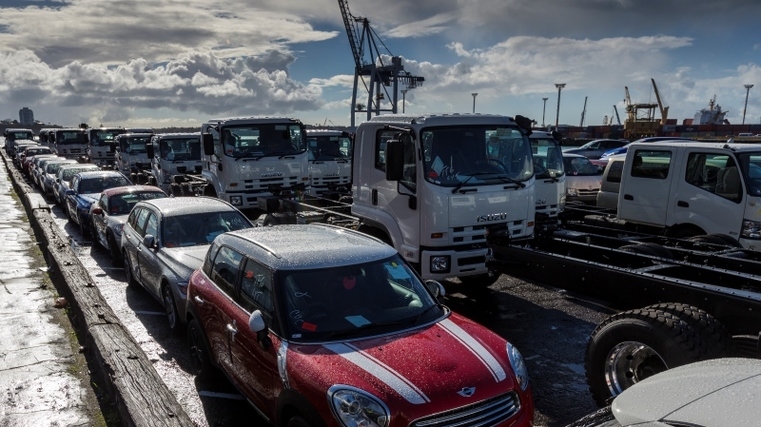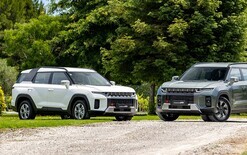Major change for used imports

Autohub has warned the used Japanese imported-vehicle business is entering a period of significant change because of the new import health standard (IHS) issued by the Ministry for Primary Industries (MPI).
Given the issues created by the brown marmorated stink bug (BMSB) earlier this year, the IHS has been revised effectively putting in place measures to ensure no stink-bug threats exist to New Zealand from the used-vehicle import pathway.
There are a number of changes that affect many import pathways, but the most important to used-vehicle importers is how this affects them, their businesses and vehicle supplies.
From September 1 to April 30, all used vehicles from Japan must meet the new IHS standards. Under the standard, treatments for BMSB are fumigation with methyl bromide, fumigation with sulfuryl fluoride and heat treatment to prescribed temperatures.
“Without boring you with the details, this means all used vehicles will need to be heat treated before they can be loaded onto a vessel because fumigation with methyl bromide or sulfuryl fluoride is not available by law in Japan,” says Autohub in a customer notice.
“Due to the short timeframe of implementation of the new IHS regulations, we believe there may be a lack of infrastructure in all Japanese ports for the efficient provision of heat treatment to cover the average volumes of vehicles being shipped to New Zealand every month. As a consequence, there will likely be delays in your vehicles arriving.
“The new IHS states any vessel must be 100 per cent clean before reaching New Zealand shores. Even if there is one live stink bug, the vessel will be strictly scrutinised and potentially turned away without the ability of returning to New Zealand shores.
“Shipping lines usually carry multiple market cargos often consisting of new and used vehicles. As used vehicles for Fiji also require heat treatment, but Australia doesn’t, this has caused concerns for the shipping lines of cross-contamination of the New Zealand-bound cargo. Needless to say, they are considering their positions on risk, liability and solutions.
“Autohub is working with JEVIC, our current and long-time pre-export processing partner, and it has stated, ‘we are expecting our H/T facilities will be sufficient to cover Autohub volume in all ports including Osaka’. All going well, we should have no issues once any teething problems have been addressed. We have also invested in our own heat-treatment units to ensure sufficient capacity for treatment will be available in the near future.”
During the past six months, Autohub has been advised by all the shipping lines it uses that bunker-fuel prices have increased by more than 40 per cent – a result of the global relationship changes between the US and other oil-producing nations. All lines have increased or will be increasing, prices to customers to cover cost increases.
“We have also seen a slide in our dollar value against the yen and US dollars – both currencies are used to pay our shipping providers,” the Autohub statement continues. “We are yet to be advised by JEVIC what the additional heat-treatment costs are to be but have had an indication.
“New Zealand transportation and delivery costs have also increased due to fuel-price increases and additional fuel taxes. Road-user charges are also about to be increased as notified by the Road Transport Forum. When we are in a position to confirm new pricing, we will advise. Some of the increases are likely to take effect for all vehicles being loaded from September 1.
Autohub says it has received some wide and varied comments from customers specialising in electric vehicles (EVs) about their concerns of the effects of heat treatment on car batteries. The IHS standard requires a vehicle to be exposed to 60 degrees Celsius for 10 minutes.
“These vehicles are subjected to higher temperatures for far longer just sitting in an outdoor car park in Japan at the height of summer,” says Autohub.
“Nonetheless, if you present a used EV to Autohub to ship from Japan to New Zealand during the BMSB season, it will be heat treated prior to vessel loading and shipped.
“As heat treatment is a regulatory requirement by the MPI, Autohub will not be liable for and damage or degradation – real or perceived – to EV batteries and associated equipment. Please proceed with the purchase and shipping of these vehicles at your own risk. With some patience and keeping a good sense of humour, we should all get through this next rough patch together successfully.”
AUTOHUB ADVISORY OF JULY 27
There was a serious disruption in the supply chain beginning February year due to BMSBs being found on arriving ro-ro vessels from Japan.
These ships were carrying their normal mix including new and used cars, new and used plant and machinery, and other cargo.
“What cargo was carrying BMSBs has still not been established beyond doubt and this has caused the MPI – and supply chain in general – much concern as to how to prevent such a reoccurrence,” states Autohub.
“The MPI has released the final draft of the new IHS for vehicles, machinery and equipment. To summarise how this affects used-vehicle importers, the net effect is all used vehicles exported from Japan from September 1 to April 30 will have to undergo additional treatment to ensure they meet the standard. This applies to used vehicles shipped via ro-ro or container.
“There are three treatment options in the standard. Two of them are fumigation treatments – neither are allowed to take place in Japan. The third is heat treatment. This requires vehicles to be heated to 60 degrees Celsius for a minimum of 10 minutes – the total treatment time per vehicle is estimated to be 30-40 minutes with “ramp up” and “ramp down” temperature. This treatment will likely be in addition to current MPI treatment processes being supplied by service providers in Japan.
“There are likely to be some restrictions in how many vehicles can be treated in the required timeframes to be available for shipping. Autohub has five new chambers en-route to Japan and anticipates these to be operational soon after September 1, so this should alleviate any backlogs of stock to be shipped fairly quickly. It’s likely heat treatment and additional service costs will come into effect in mid- to late-August.”





